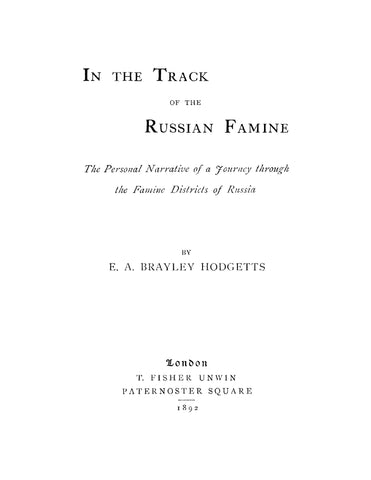
RUSSIA: In the Track of the Russian Famine: The Personal Narrative of a Journey Through the Famine Districts of Russia
by E A Brayley Hodgetts. 1892. 237p
The document describes the dire conditions faced by a peasant family living in a small hut with 13 members. The women manage domestic tasks while the men are responsible for providing food, but the local economy is struggling, with factories performing poorly. The gentry feels powerless in the face of these challenges, and the peasants have come to expect aid as a right, reflecting a deep-seated dependency on external support.
As the narrator travels to Tula, a province noted for its prosperity, he aims to observe the true essence of Russian life. His encounters with the local gentry reveal their concerns about the apathy of the peasants, who seem to rely heavily on government assistance rather than taking initiative to improve their circumstances. This dynamic highlights a troubling relationship between the landowners and the laborers, where the latter's expectations of support from the government further entrench their dependency.
The document emphasizes the peasants' belief in land ownership and the government's responsibility for their sustenance. This perspective illustrates a broader societal issue, where the expectations of aid and support have become ingrained in the peasant mindset, leading to a cycle of reliance that hinders self-sufficiency. The narrator's observations serve as a commentary on the complexities of Russian social dynamics during this period.
